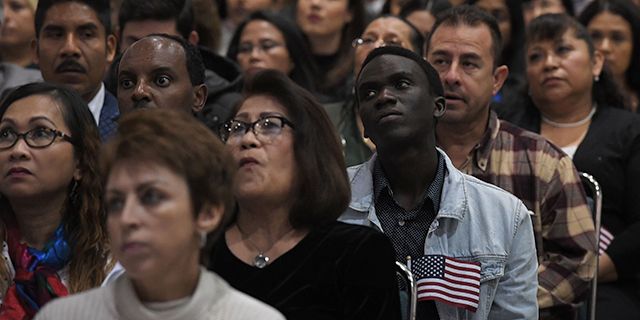Opposition figures and civil society in Uganda have sharply criticized a newly revealed agreement with the United States to receive deported migrants, accusing President Yoweri Museveni’s government of bypassing Parliament and prioritizing political expediency over national interest.
The deal, confirmed by Ugandan officials this week, comes as Washington moves to expand its controversial “third-country deportation” policy. Under the arrangement, Uganda has agreed to host certain deportees, with authorities reportedly preferring migrants of African origin and excluding those with serious criminal records.
But rights groups and opposition lawmakers say the agreement lacks transparency and parliamentary oversight.
“Without parliamentary approval, the whole scheme stinks,” said Mathias Mpuuga, the former leader of the opposition in Uganda’s National Assembly. “Uganda is already struggling to care for refugees fleeing violence from neighboring countries. Accepting U.S. deportees makes sense only as economic expediency.”
Ibrahim Ssemujju, a prominent opposition MP, was even more direct: “Museveni will be happy to transact with Washington. He will be asking, ‘When are you bringing them?’”
The controversy intensified after U.S. immigration officials confirmed that Kilmar Abrego Garcia, a Salvadoran national charged with human smuggling, is being processed for removal to Uganda. His case, which has drawn international attention, has fueled speculation about the scope of Uganda’s commitment.
Ugandan officials have provided few details. Deputy foreign minister Okello Oryem initially dismissed reports of the agreement as “complete rubbish.” But his ministry later acknowledged that a deal was in place to receive individuals unwilling or unable to return to their countries of origin. Negotiations are believed to have been handled directly under Museveni’s office.
For critics, the timing is no coincidence. Museveni, who has ruled Uganda since 1986, has faced growing U.S. sanctions over corruption, democratic backsliding, and a hardline anti-LGBTQ law passed in 2023. Those targeted include Parliamentary Speaker Anita Among, the prisons chief, and several former top security officials.
Analysts suggest the deal could be Museveni’s way of easing pressure from Washington while seeking economic or trade concessions. “This arrangement benefits Museveni politically and perhaps economically,” said Marlon Agaba, executive director of the Anti-Corruption Coalition Uganda. “The Trump administration is about deal-making, and any strongman would welcome that.”
The U.S. has already deported groups of migrants to Eswatini and South Sudan under similar agreements. Rwanda has also signaled willingness to accept up to 250 deportees.
For now, critics in Kampala are demanding answers. “The matter should be handled by Parliament,” said Ssemujju. “Otherwise, the whole agreement is flawed.”


